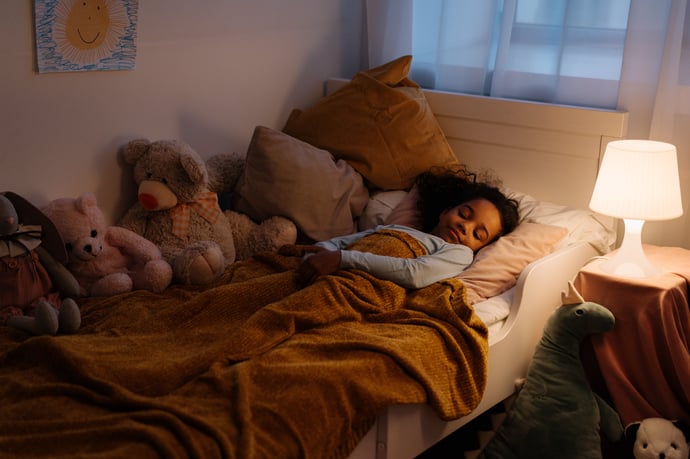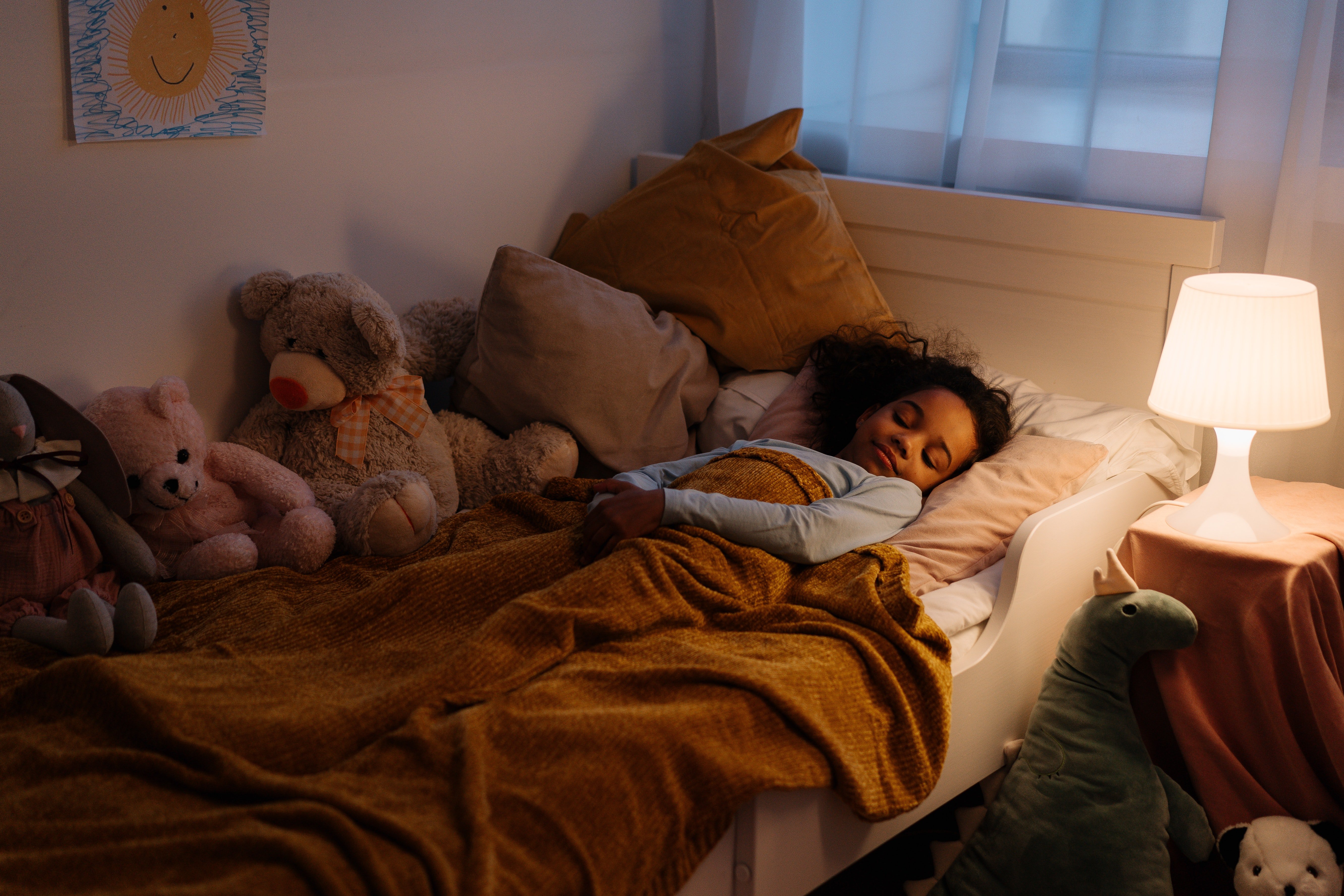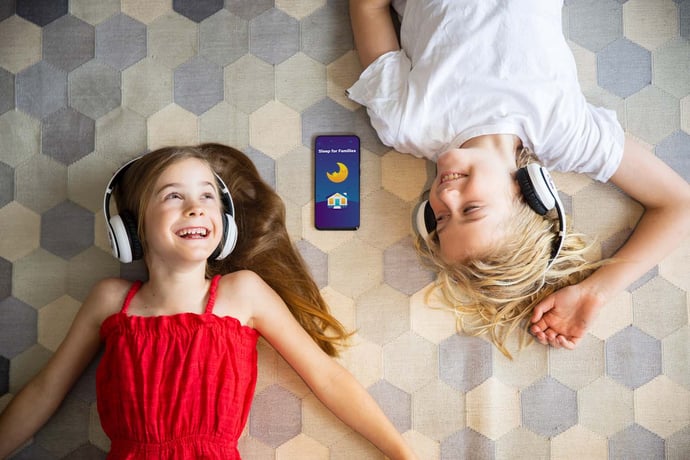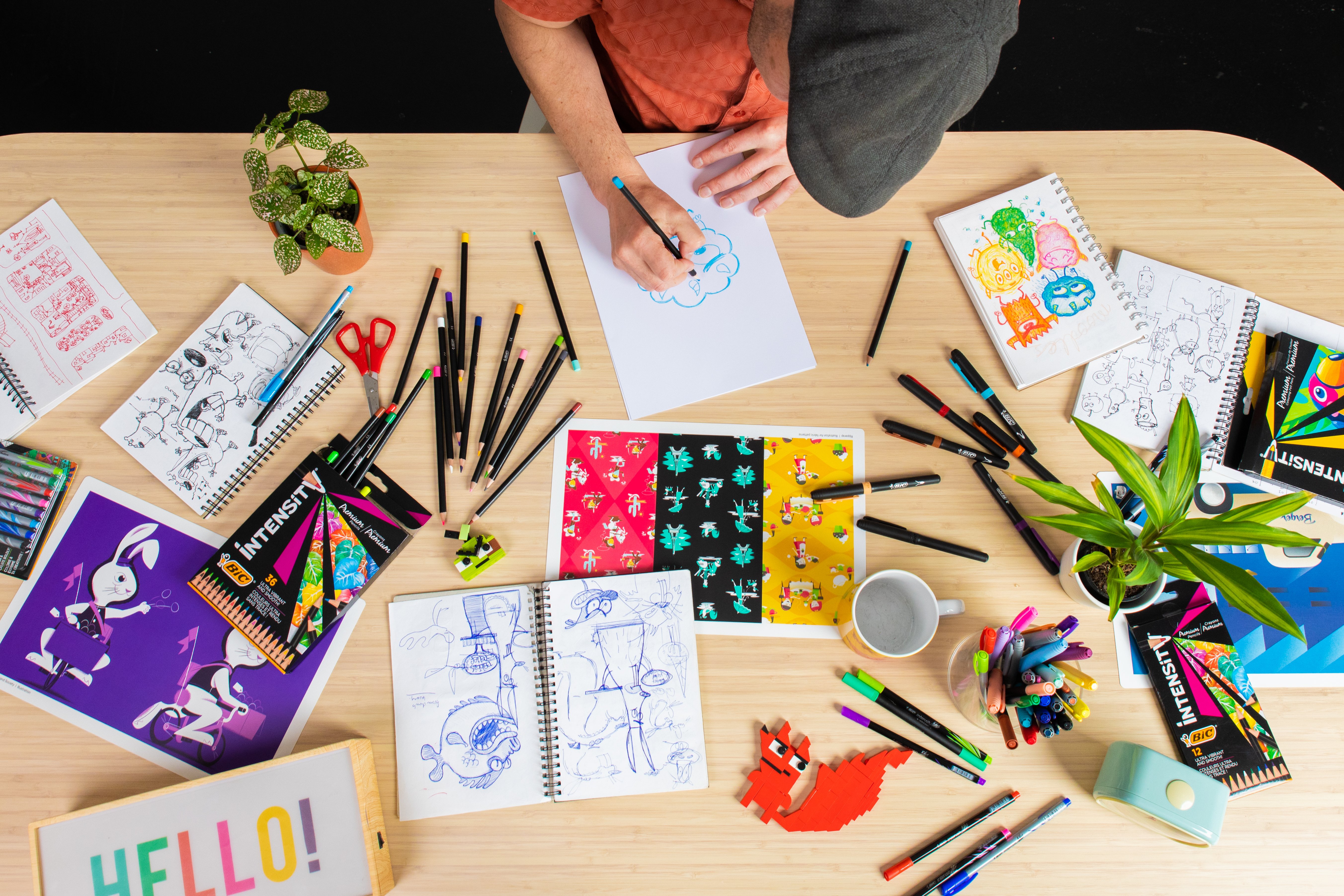It’s no secret getting a good night’s sleep works wonders for your mental and physical health – but for some, getting a ‘good’ night’s sleep isn’t so easy.
For the average adult, 8 hours of sleep is the ideal amount of time you need to recharge and regenerate. For teenagers, closer to 10 hours is ideal, and for school-age children, up to 11 hours of sleep is optimal1. However, most people will encounter sleep-related difficulties at some point in their lives.
![]()
A study in Smiling Mind’s 2021 State of Mind Report found that 46% of participants identified sleep as the most important thing in their life that has helped them cope with pressures of the past year, and feel more positive overall. However, the report also found that 43% of participants reported that a lack of sleep was a key challenge that affects their overall mental health2.
Whether it’s getting to sleep or staying asleep that you or someone in your family struggles with, there are plenty of helpful tips and tricks that can help you get your best night’s sleep yet. In light of this, we’ve rounded up the top 5 steps that will help you and your loved ones get a better night’s sleep.
1. Make sure your bedroom (and bed) is comfortable
If you have been meaning to get a more supportive pillow, this is your sign. If your bedroom isn’t set up for sleep, it’s likely that you will take far longer to fully relax and get to sleep3. Ensure that you sleep in a quiet, dark room, that is the right temperature for you, with a comfortable, supportive mattress and pillow. Removing screens from your bedroom can also assist, we know they can disturb sleep and also tempt you to turn to them in the middle of the night which doesn’t help returning to sleep!

2. Have a regular bedtime and sleep routine
By going to bed at a similar time and waking up at the same time as often as possible, your body clock will adjust or ‘train’ itself over time to know when you should be asleep, and when you should be awake.
Sometimes, getting to bed at the same time each night can be difficult – especially now with social life and work life getting back to normal. Instead of trying to stick to a strict sleep regime, try going to bed at the same time during the work week to begin with. Where possible it’s also ideal to keep your sleep routine over the weekend - it’s ok to go to bed a bit later, however the biggest time difference in rising should be no more than one hour! This way, you don’t disrupt your circadian rhythm too much to readjust to a working week on Monday. Remember, the average adult needs around 8 hours of sleep – so if you have to wake up at a certain time, work backwards to know the latest time you should be in bed.
Our NEW Sleep for Families program supported by our Official Health Partner Medibank is a great way to get started.
3. Meditate
The 2021 State of Mind report found that of the people who began meditation as a proactive strategy to improve their mental health, 36% reported improvement in their sleep, as well as improvement in their stress management. If you struggle to get a good night’s sleep and are thinking about trying meditation, the Smiling Mind app is a great place to start! We have over 400 free meditations developed by psychologists and educators that will not only help improve the quality of your sleep, but it can also develop mindfulness in other parts of your day.

4. Avoid screens before bed
Artificial (blue) light at night can disrupt your body’s biological clock, so winding down your screen time before bed is a great way to prepare your mind and body for sleep. It is suggested that you limit your screen time (especially bright screens) for two to three hours before bed4. Instead of scrolling on your phone or watching movies, try reading a book or practising a guided meditation before you go to sleep.
5. Don't get into bed too early
Although it may sound like a great idea, if you get into bed too early, when you are still awake and alert, you may find it actually takes you longer to fall asleep than it would if you got into bed when you start feeling sleepy. If you find yourself lying around for hours waiting to fall asleep, you are more likely to give up and re-stimulate yourself with screens or other distractions late at night, disrupting your sleep rhythm. If you are a natural night owl, start slow by listening to your body, and don’t get into bed until you know you are almost ready for sleep5.
Take your first steps to a better night sleep today with our NEW Sleep for Families program supported by our Official Health Partner Medibank , now live in the Smiling Mind App - just make sure your app is up to date!












.jpg)




